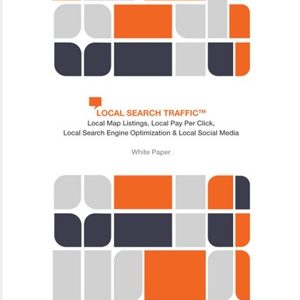
As a small business owner, you likely started your company to pursue your passions. However, you may find yourself bogged down by tasks unrelated to your core mission, such as managing receipts, paying bills, handling customer service, and even cleaning. Somehow, you also need to fit in time to serve as the chief marketing officer and get back to doing what you love.
From my experience as a seasoned SEO expert with 17-18 years in the field, I can assure you that keeping up with search engine optimization (SEO) can feel like a full-time job. However, you need to understand it at some level or at least be familiar with what your SEO specialist should be talking about.
This article aims to outline the top principles of SEO that every small business owner should be aware of. Mastery isn’t required—just a basic understanding is beneficial:
- What these principles are.
- How they impact search.
- What to consider when learning about these strategies or hiring someone who already knows them.
Additionally, we’ll include a brief glossary of common terms that might confuse you but are handy to know. First, let’s dive into the principles.
SEO Principle 1: Content User Intent
You’ve probably heard the phrase "Content is king" countless times. That’s not entirely accurate. User intent is king, and content is the means to fulfill it. When creating content, ask yourself: "What type of content will most likely fulfill the search engine users’ intents?"
For example, if a user searches for "Nike shoes," they may or may not be looking to buy them. Thousands of sites sell Nike shoes, and to stand out, your site needs to offer a wide selection and detailed information. But this is just one possible intent. Users might also want reviews, comparisons, or details about the latest models.
Google aims to fulfill the searcher’s intent, so your content should focus on meeting various potential intents effectively.
SEO Principle 2: Links
Links are among the top ranking signals. Understanding the ins-and-outs of link building can be challenging, even for seasoned professionals. Here are a few key points:
-
Why Links Matter: Think of a link as a vote. Some votes are more equal than others. The stronger the linking page and the more likely it is to be clicked, the more weight it carries.
- What to Look for in a Link:
- Is the link relevant outside of link building?
- Would you click the link, and would you be satisfied with where it leads?
- Do your competitors have similar links?
- Does the anchor text make sense?
SEO Principle 3: Technical
Technical SEO focuses on the code-side or server-side of your web presence. Its impact is felt in areas such as:
- Speed
- Structured data/Schema
- Internal linking structures
- Scripts and tracking
- Content issues like duplication and incorrect canonical tags
- Key URL functions like HTTPS switching
Technical SEO is complex and best handled by professionals.
SEO Principle 4: Local SEO
If you’re targeting the local market, there are specific SEO strategies tailored for you. Local SEO places more emphasis on local relevancy than overall site strength. Here are a few things to consider:
- Implementing Organizational schema.
- Embedding a Google Map of your verified Google My Business listing on your contact page.
- Verifying your business with Bing.
- Paying attention to citations and NAP (Name, Address, Phone Number) consistency.
Smaller local papers and sites may hold more value for local link efforts.
SEO Principle 5: Machine Learning
Machine learning, particularly Google’s RankBrain, has significantly impacted search algorithms. It helps search engines understand content and context similarly to humans. This technology processes data, understands its meaning, and uses it to tailor search results to meet individual searcher intents.
With machine learning, search engines can better interpret natural signals, making your content and SEO strategies more crucial.
Conclusion
Hopefully, you now have a better understanding of the essential SEO strategies. Knowing “why” is often more valuable than knowing “how” as it helps you navigate various techniques and keep up with evolving practices.
SEO Glossary
Here are some common SEO terms:
- Algorithm: A computer program used to rank websites.
- Canonical URL: Defines the URL that should be credited with content.
- Citation: A reference to a site in local SEO.
- Crawler or Bot: Bots that search engines use to discover new content.
- Entities: Defined singular concepts like a person, place, or thing.
- NAP: Name, Address, Phone Number consistency.
- PageRank: Algorithm determining a page’s importance based on incoming links.
- Pogo-sticking: When users quickly leave a site after visiting.
- SEO, SEM & PPC: SEO for organic search, PPC for paid results, and SEM covering both.
- SERP: Search Engine Results Page.
- UX: User Experience.
These terms will help you better understand SEO conversations and strategies.



